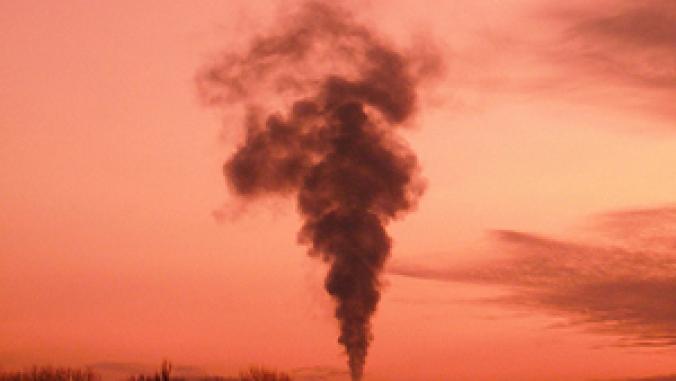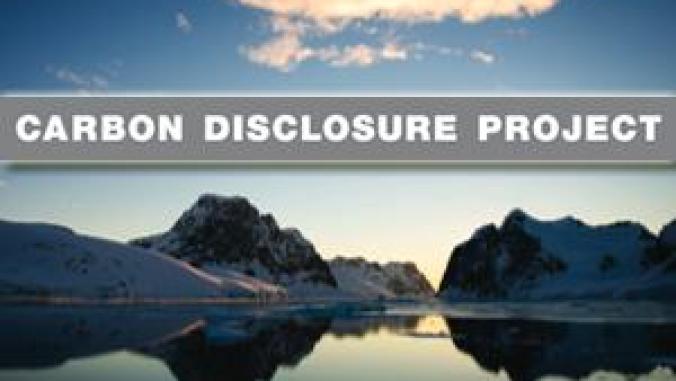Mayors Conference Honors Top Climate Protectors
Albuquerque and Fayetteville, Ark., received the top honors in the first annual award ceremony, which celebrates cities that adopt innovative practices to increase energy efficiency to help curb global warming.
At the 75th annual U.S. Conference of Mayors, two cities -- one large and one small -- were singled out for their efforts to use the most innovative practices possible in increasing energy efficiency to curb global warming.
Mayors Martin Chavez of Albuquerque, N.M., and Dan Coody of Fayetteville, Ark., accepted the awards for their cities. An independent panel of judges, selected by The U.S. Conference of Mayors, determined the winning cities from a pool of over 100 applicants based on the following criteria: mayoral leadership, creativity and innovation, and reduction of greenhouse gas emissions and/or improved quality of life in their community.
"These two outstanding cities, Albuquerque and Fayetteville, demonstrate that mayors are crossing geographic and population lines and all taking action, regardless of where they're located," said Conference President Doug Palmer. "We commend all the award winning cities as well as the honorable mentions, and we're grateful to Wal-Mart for making these awards possible."
Outstanding Achievement Awards were given to Austin Mayor Will Wynn, Baltimore Mayor Sheila Dixon and Chicago Mayor Richard M. Daley. Honorable Mention citations were awarded for the following cities: Mayor Graham Richard, Ft. Wayne, Ind.; Mayor Mufi Hannemann, Honolulu, HI; Mayor R.T. Ryback, Minneapolis, Minn.; Mayor Michael Bloomberg, New York, NY; Mayor Marsha McClean, Santa Clarita, Calif; Mayor Greg Nickels, Seattle, Wash.; Mayor Gene Marks, Northbrook Ill.; Mayor Richard S. Kelly, Palm Desert, Calif; Mayor Gary A. Slagel, Richardson, Texas; Mayor Marty Blum, Santa Barbara, Calif.
Tom Cochran, Executive Director of the U.S. Conference of Mayors said of the recipients, "It's amazing to see the variety and scope of projects that mayors have created in their cities to take action in protecting our planet. We’re very happy to be able to honor so many great mayors for their admirable efforts, and many will serve as examples for other cities, large and small."
In first place for the Large City award, Albuquerque's AlbuquerqueGreen Program was selected as the national winner. This program aims to improve the quality of life for Albuquerque residents by making the city more bicycle- and pedestrian-friendly Southwestern city, offering incentives for the creation and relocation cleantech companies to the city, converting its auto fleet to alternative fuels and continuing to change city operations to reduce GHG emissions.
For the Small City award, Fayetteville’s Alternative Transportation and Trail Master Plan took home the top prize. The Plan has already created 129 miles of multi-use trails and 163 miles of on-street linkages to the city. The program's goal is to establish alternative modes of transportation and active recreation as an integral part of daily life. This innovative program provides an alternative to auto-based transportation for area residents, and the trails have ultimately helped reduce vehicle miles traveled, which leads to fewer green house gas emissions. Fayetteville’s master plan also spawned the development of other trail plans in the region, which will eventually lead to a regional network.
Three cities were also recognized for Outstanding Achievement in Climate Protection at the conference. Austin, Texas, received the nod for an innovative program that includes making all city facilities, fleets and operations totally carbon-neutral by 2020, switching their fuels to be 30 percent renewable by 2020 and targeting to have the most energy-efficient building codes in the nation by making all new single-family homes zero-energy-capable by 2015.
Chicago Mayor Richard M. Daley’s "Smart Bulb Program" was selected in part because it was the first program in the nation that has distributed 500,000 free CFLs to community residents. Additionally, area residents were educated through flyers and their website on the benefits of CFLs, in turn reducing electric bills for many Chicagoans while reducing greenhouse gas emissions throughout the city.
And Baltimore Mayor Sheila Dixon’s "Energy Conservation Program” was selected because it serves as a strong city-wide model to reduce the City’s cost and consumption of energy. This project also included incorporating an energy reduction project at 180 public school buildings in Baltimore, as well as in 33 city buildings.
Mayors Martin Chavez of Albuquerque, N.M., and Dan Coody of Fayetteville, Ark., accepted the awards for their cities. An independent panel of judges, selected by The U.S. Conference of Mayors, determined the winning cities from a pool of over 100 applicants based on the following criteria: mayoral leadership, creativity and innovation, and reduction of greenhouse gas emissions and/or improved quality of life in their community.
"These two outstanding cities, Albuquerque and Fayetteville, demonstrate that mayors are crossing geographic and population lines and all taking action, regardless of where they're located," said Conference President Doug Palmer. "We commend all the award winning cities as well as the honorable mentions, and we're grateful to Wal-Mart for making these awards possible."
Outstanding Achievement Awards were given to Austin Mayor Will Wynn, Baltimore Mayor Sheila Dixon and Chicago Mayor Richard M. Daley. Honorable Mention citations were awarded for the following cities: Mayor Graham Richard, Ft. Wayne, Ind.; Mayor Mufi Hannemann, Honolulu, HI; Mayor R.T. Ryback, Minneapolis, Minn.; Mayor Michael Bloomberg, New York, NY; Mayor Marsha McClean, Santa Clarita, Calif; Mayor Greg Nickels, Seattle, Wash.; Mayor Gene Marks, Northbrook Ill.; Mayor Richard S. Kelly, Palm Desert, Calif; Mayor Gary A. Slagel, Richardson, Texas; Mayor Marty Blum, Santa Barbara, Calif.
Tom Cochran, Executive Director of the U.S. Conference of Mayors said of the recipients, "It's amazing to see the variety and scope of projects that mayors have created in their cities to take action in protecting our planet. We’re very happy to be able to honor so many great mayors for their admirable efforts, and many will serve as examples for other cities, large and small."
In first place for the Large City award, Albuquerque's AlbuquerqueGreen Program was selected as the national winner. This program aims to improve the quality of life for Albuquerque residents by making the city more bicycle- and pedestrian-friendly Southwestern city, offering incentives for the creation and relocation cleantech companies to the city, converting its auto fleet to alternative fuels and continuing to change city operations to reduce GHG emissions.
For the Small City award, Fayetteville’s Alternative Transportation and Trail Master Plan took home the top prize. The Plan has already created 129 miles of multi-use trails and 163 miles of on-street linkages to the city. The program's goal is to establish alternative modes of transportation and active recreation as an integral part of daily life. This innovative program provides an alternative to auto-based transportation for area residents, and the trails have ultimately helped reduce vehicle miles traveled, which leads to fewer green house gas emissions. Fayetteville’s master plan also spawned the development of other trail plans in the region, which will eventually lead to a regional network.
Three cities were also recognized for Outstanding Achievement in Climate Protection at the conference. Austin, Texas, received the nod for an innovative program that includes making all city facilities, fleets and operations totally carbon-neutral by 2020, switching their fuels to be 30 percent renewable by 2020 and targeting to have the most energy-efficient building codes in the nation by making all new single-family homes zero-energy-capable by 2015.
Chicago Mayor Richard M. Daley’s "Smart Bulb Program" was selected in part because it was the first program in the nation that has distributed 500,000 free CFLs to community residents. Additionally, area residents were educated through flyers and their website on the benefits of CFLs, in turn reducing electric bills for many Chicagoans while reducing greenhouse gas emissions throughout the city.
And Baltimore Mayor Sheila Dixon’s "Energy Conservation Program” was selected because it serves as a strong city-wide model to reduce the City’s cost and consumption of energy. This project also included incorporating an energy reduction project at 180 public school buildings in Baltimore, as well as in 33 city buildings.




